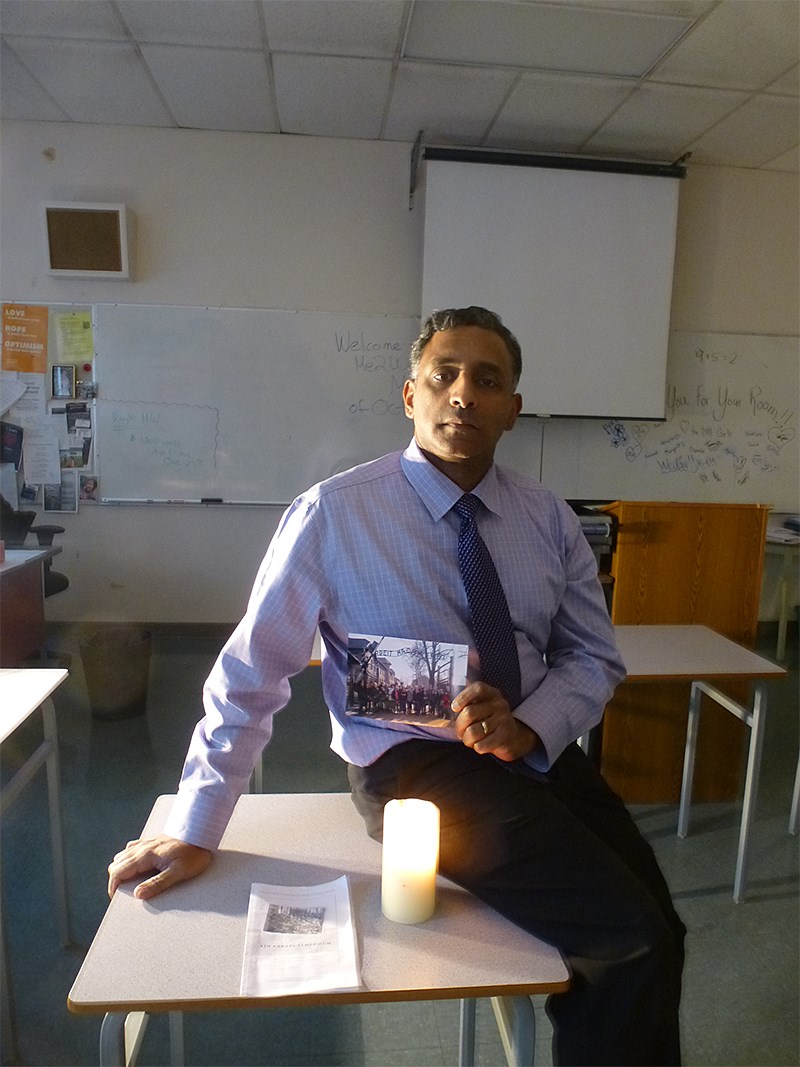There is a moment when young people have to come to grips with the contradictions of being human and the consequences of hate.
For thousands of School District 43 students that moment comes when they meet a holocaust survivor and hear their chilling story during the annual Holocaust Symposium organized by Dr. Charles Best secondary teacher Ken Ipe and his Social Justice 12 class.
It's a challenging moment, says Ipe, but an important one for many students.
Through films, presentations from scholars and storytelling by holocaust survivors, students come to understand what can happen so easily and quickly when people decide others are not human beings and should be killed.
"You can have an A in chemistry, but so what," Ipe says. "What's your moral compass?"
This year the 10th annual symposium is being held Wednesday, Nov. 1, at Coquitlam Alliance Church where students will talk about the systemic and state-sponsored persecution and murder of six million Jews by the Nazi regime and its collaborators in Europe during the late 1930s and early 1940s.
They will also hear from Janos Benisz, who was sent to a Nazi concentration camp at the age of six with his mother and later came to Canada as a war orphan.
Also speaking will be Lauren Faulkner Rossi, an assistant professor of history at SFU, who teaches Holocaust and Genocide Studies, and teacher Megan Leslie who will talk about a Tri-City connection to the Auschwitz concentration camp where a Coquitlam family's accordion resides in a museum exhibit there.
Ipe says it's important to continue to hold the symposium but it will become increasingly more challenging in the coming years as the number of Jewish holocaust survivors is dwindling.
To continue to be relevant, the program will talk to survivors of other conflicts, where people are being persecuted for their beliefs or other circumstances, but he worries it won't have the same power.
In the meantime, however, he is looking forward to this year's event, which he expects will be attended by 600 to 700 Grade 10,11 and 12 students, some of whom will talk about projects they're involved in to make a positive change, whether it be to support vulnerable people in the Downtown Eastside or to protest brutality in Myanmar.
Action is as important as words, said Ipe, "to end the cycle of indifference."



